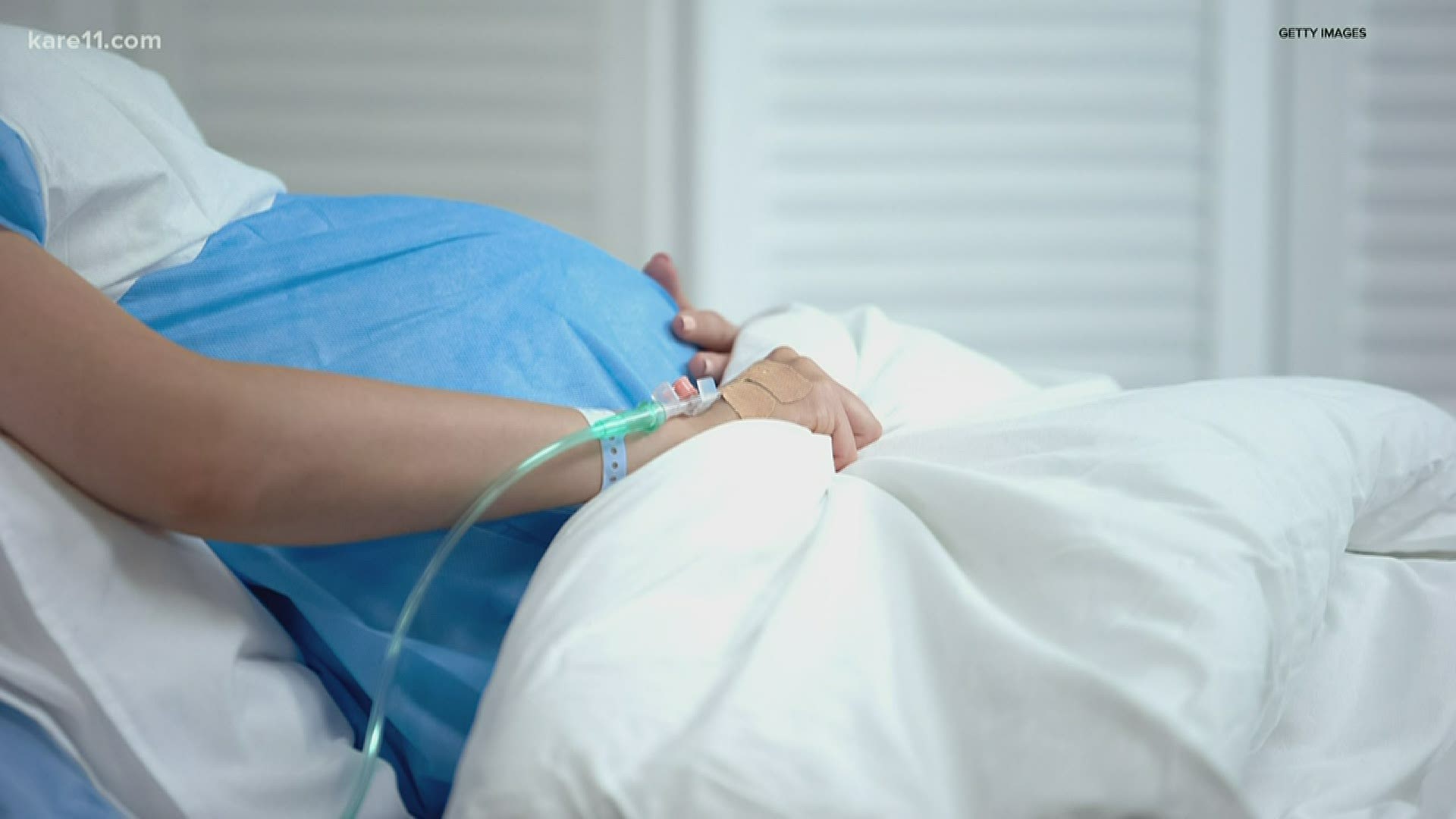ROCHESTER, Minnesota — There are still many unknowns when to comes to COVID-19 related to pregnancies.
"We don't have any evidence that pregnant women are affected differently than nonpregnant women or that they get worse disease when they do get infected," said Dr. Regan Theiler, chair of obstetrics at Mayo Clinic in Rochester.
The Centers for Disease Control and Prevention said we do know that pregnant people have had a higher risk of severe illness when infected with viruses from the same family as COVID-19 and other viral respiratory infections like the flu. Changes in the body due to pregnancy may also increase the risk of some infections.
"But this one seems to be different," Dr. Theiler said.
It's also changed prenatal care. Mayo Clinic has universally implemented its OB Nest program that decreases the number of in-person visits for those with low-risk pregnancies.
"We're really going full on... with telemedicine support and bringing women into the hospital and the clinic only for those visits when they need a physical exam or they need laboratory or ultrasound testing. This has been really well received and I do think that this pandemic will change the way we do prenatal care moving forward," Dr. Theiler said.
It isn't clear if someone who is pregnant with COVID-19 can then pass the virus on to their baby.
RELATED: Pregnant mother nearing delivery worries about COVID-19 exposure after parents test positive
"We don't have a definitive answer to that right now. We have a few case reports... mostly out of China, one in Peru, suggesting that the infection may be transmitted to the baby before or during birth. We do know that the baby is at some risk if mom's infected and then after birth, the baby rooms in with mom, has close contact with mom," Dr. Theiler said.
According to the CDC, studies to date have not detected the virus in breast milk.
"So we don't think the breast milk itself is a risk, and in some diseases it is," Dr. Theiler said.
However, transmission may occur from the close contact that happens while breastfeeding.
"We're asking moms to wear a mask... wash their hands, wear gloves, handle the baby carefully and observe those precautions. The other option is to isolate from the baby and take the baby to the nursery to a separate room until we know mom is COVID negative. That's a very difficult decision for moms to make, especially as we can't counsel very well about the absolute risk," Dr. Theiler said.
RELATED: COVID 19: Hospitals restrict visitors during baby deliveries, pregnant women seek alternatives
Hospitals have also been restricting the number of visitors allowed in during childbirth. At Mayo Clinic, they allow one visitor. Once home, Dr. Theiler said everyone should still practice social distancing.
"So grandma and grandpa probably shouldn't come over. They probably should stay home if they don't already live with you," Dr. Theiler said.
There have been reports of people choosing home births amid the coronavirus outbreak. Dr. Theiler said, "If you're uncertain about delivering in the hospital or not delivering in the hospital, talk to your doctor, find out what the policies are at your hospital and how you can best accommodate your birth plan safely with your provider."
Dr. Theiler also added that if you're pregnant and experiencing COVID-19 symptoms, call your doctor and request testing.
KARE 11’s coverage of the coronavirus is rooted in Facts, not Fear. Visit kare11.com/coronavirus for comprehensive coverage, find out what you need to know about the Midwest specifically, learn more about the symptoms, and see what companies in Minnesota are hiring. Have a question? Text it to us at 763-797-7215. And get the latest coronavirus updates sent right to your inbox every morning. Subscribe to the KARE 11 Sunrise newsletter here. Help local families in need: www.kare11.com/give11.
The state of Minnesota has set up a hotline for general questions about coronavirus at 651-201-3920 or 1-800-657-3903, available 7 a.m. to 7 p.m.

